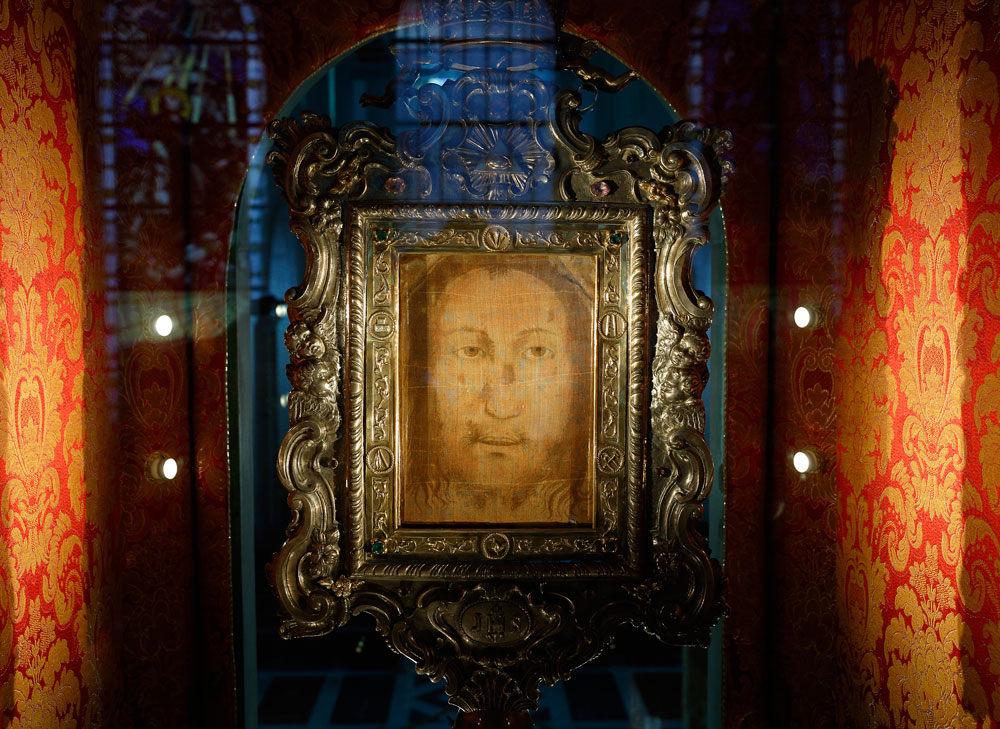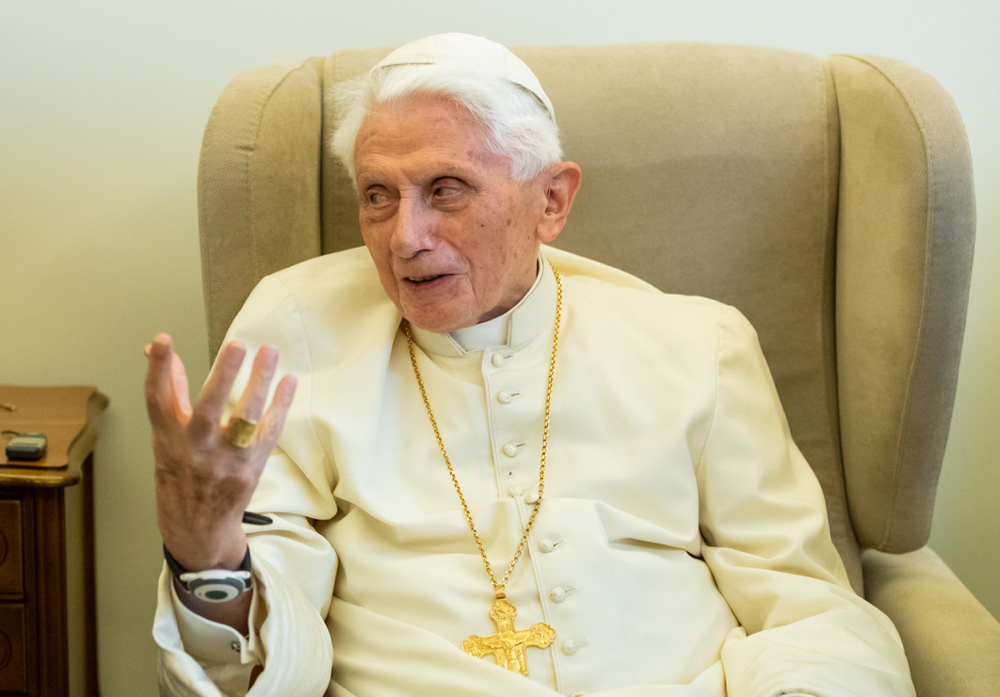The former Pope has blamed the 1960s as an "egregrious" decade that is at the roots of the clerical sex abuse crisis in the Catholic Church.
In an essay today, Pope Emeritus Benedict XVI writes: "In the 1960s an egregious event occurred, on a scale unprecedented in history. It could be said that in the 20 years from 1960 to 1980, the previously normative standards regarding sexuality collapsed entirely, and a new normalcy arose that has by now been the subject of laborious attempts at disruption."
He published the essay in the Klerusblatt, a monthly periodical for clergy in mostly Bavarian dioceses, after running it past the Secretary of State, Cardinal Pietro Parolin and Pope Francis himself.
Outlining the effects of the 1960s on Catholic priests and seminarians, he says he wrote the essay in an attempt to respond to the Vatican Meeting on the Protection of Minors, where in February the presidents of the world’s bishops’ conferences gathered at the Vatican to discuss the current crisis of the faith and of the Church.
"The extent and gravity of the reported incidents has deeply distressed priests as well as laity, and has caused more than a few to call into question the very Faith of the Church. It was necessary to send out a strong message, and seek out a new beginning, so to make the Church again truly credible as a light among peoples and as a force in service against the powers of destruction," he writes.
"Since I myself had served in a position of responsibility as shepherd of the Church at the time of the public outbreak of the crisis, and during the run-up to it, I had to ask myself – even though, as emeritus, I am no longer directly responsible – what I could contribute to a new beginning."
He says the clerical paedophilia crisis all began with "the state-prescribed and supported introduction of children and youths into the nature of sexuality" and cites Germany as an example, where a film showing sexual intercourse "was now shown for the purpose of education". Sexual and pornographic movies then became a common occurrence, "to the point that they were screened at newsreel theatres", he continues.
He says he remembers arriving in Regensburg on Good Friday in 1970 "and seeing all the billboards plastered up with a large poster of two completely naked people in a close embrace".
As part of the sexual revolution of 1968, paedophilia was then "also diagnosed as allowed and appropriate", he insists.
"The extensive collapse of the next generation of priests in those years and the very high number of laicisations were a consequence of all these developments. At the same time, independently of this development, Catholic moral theology suffered a collapse that rendered the Church defenceless against these changes in society."
He goes on to argue that the ongoing process of dissolution of the Christian concept of morality was marked by an unprecedented radicalism in the 1960s.
"This dissolution of the moral teaching authority of the Church necessarily had to have an effect on the diverse areas of the Church. In the context of the meeting of the presidents of the episcopal conferences from all over the world with Pope Francis, the question of priestly life, as well as that of seminaries, is of particular interest.
"As regards the problem of preparation for priestly ministry in seminaries, there is in fact a far-reaching breakdown of the previous form of this preparation."
In various seminaries, writes Benedict XVI, homosexual cliques were established, which acted more or less openly and significantly changed the climate in the seminaries.
"In one seminary in southern Germany, candidates for the priesthood and candidates for the lay ministry of the pastoral specialist lived together. At the common meals, seminarians and pastoral specialists ate together, the married among the laymen sometimes accompanied by their wives and children, and on occasion by their girlfriends.
"The climate in this seminary could not provide support for preparation to the priestly vocation."
He says that after the Second Vatican Council, "conciliar attitudes were understood to mean having a critical or negative attitude towards the hitherto existing tradition, which was now to be replaced by a new, radically open relationship with the world."
One bishop, who had previously been seminary rector, even arranged for seminarians to be shown pornographic films, allegedly with the intention of thus making them resistant to behaviour contrary to the faith, he says.
"There were — not only in the United States of America — individual bishops who rejected the Catholic tradition as a whole and sought to bring about a kind of new, modern 'Catholicity' in their dioceses."
In not a few seminaries, students caught reading his own books were considered unsuitable for the priesthood. "My books were hidden away, like bad literature, and only read under the desk."
He argues that the power of evil arises from a refusal to love God. "He who entrusts himself to the love of God is redeemed. Our being not redeemed is a consequence of our inability to love God."
The death of God in a society means the end of freedom, because what dies is the purpose that provides orientation, he argues.
"Western society is a society in which God is absent in the public sphere and has nothing left to offer it. And that is why it is a society in which the measure of humanity is increasingly lost.
"At individual points it becomes suddenly apparent that what is evil and destroys man has become a matter of course. That is the case with paedophilia. It was theorised only a short time ago as quite legitimate, but it has spread further and further. And now we realise with shock that things are happening to our children and young people that threaten to destroy them. The fact that this could also spread in the Church and among priests ought to disturb us in particular. Why did paedophilia reach such proportions? Ultimately, the reason is the absence of God."



 Loading ...
Loading ...